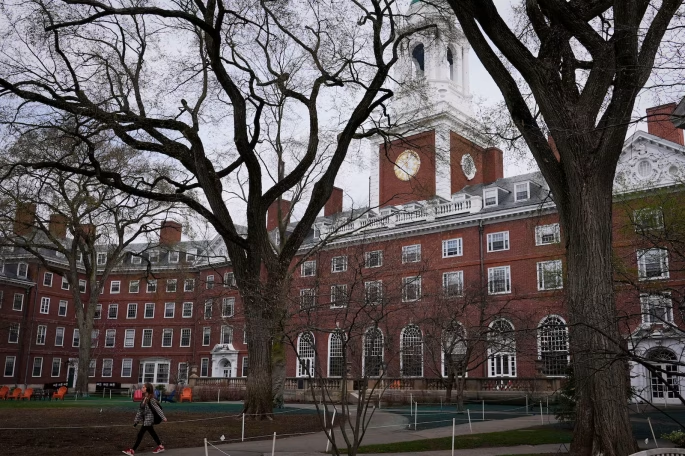Uyghur human rights advocates are criticizing Harvard University for training officials from a Chinese paramilitary organization sanctioned by the U.S. government for human rights abuses, including mass detention and forced labor in the Xinjiang Uyghur Autonomous Region.
Officials from the Xinjiang Production and Construction Corps (XPCC) participated in Harvard’s T.H. Chan School of Public Health’s executive training programs in 2023 and 2024, according to research by the China-focused business intelligence firm Strategy Risks. The program, delivered in partnership with China’s National Healthcare Security Administration, focused on health insurance governance and public health policy. Strategy Risks’ findings were later reported by the Washington Free Beacon.
The U.S. Treasury Department sanctioned the XPCC in July 2020 under the Global Magnitsky Act, citing the organization’s central role in implementing mass surveillance, internment, and forced labor policies targeting Uyghurs and other Turkic minorities. The sanctions prohibit U.S. individuals and institutions from engaging in most forms of cooperation with the XPCC.
“The XPCC is not a neutral administrative body—it is the paramilitary arm of the Chinese Communist Party,” Sabrina Sohail, director of advocacy and communications at Campaign for Uyghurs, told RFA. “By training its officials, Harvard risks legitimizing a system complicit in genocide.”
Sohail said that the XPCC is “complicit in forced sterilizations, organ harvesting, and unethical experiments on Uyghurs.”
“The institution’s link to XPCC officials after sanctions were imposed is not just ignorance of the U.S. law and policy; it is lending legitimacy to those responsible for mass internment, forced labor, and systemic human rights abuses,” she said.
The XPCC, also known as “Bingtuan,” operates as a quasi-military and economic body in Xinjiang. It oversees major agricultural and industrial sectors and maintains its own police force, courts, and media. U.S. officials have accused it of helping to administer detention facilities and forced labor programs central to China’s repression of Uyghurs.
The U.S. government has determined the abuses against the Uyghurs, a mostly Muslim group, amount to genocide. An estimated 1.8 million Uyghurs were interned in Xinjiang, in China’s far west, after 2017.
China denies allegations of rights abuses. Its Commerce Ministry describes XPCC as “a strategic force for national stability and border defense” that operates under “a unique management system that combines the functions of the Party, government, military, and enterprises.” It runs development zones, 16 listed companies, and more than 3,000 enterprises.
Henryk Szadziewski, director of research at the Uyghur Human Rights Project, said that U.S. institutions should understand the legal and ethical risks of working with sanctioned entities.
“The XPCC is under U.S. sanctions for atrocity crimes targeting Uyghurs,” he said. “It’s the responsibility of academic institutions in the U.S. – and elsewhere – to be aware of those sanctions and avoid any form of cooperation that could violate U.S. law or undermine human rights.”

